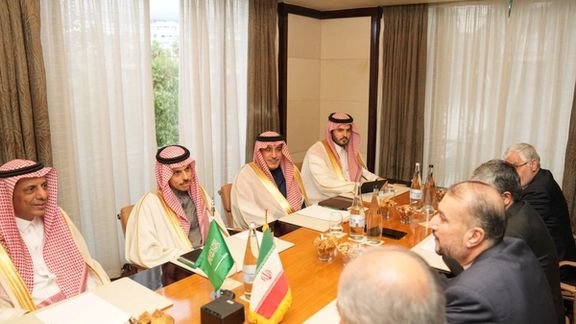Blinken To Visit Riyadh, Amid Shift In Saudi Foreign Policy

US Secretary of State Antony Blinken will visit Saudi Arabia next week, amid Riyadh’s shifting foreign policy drawing closer to Beijing and a détente with Iran.

US Secretary of State Antony Blinken will visit Saudi Arabia next week, amid Riyadh’s shifting foreign policy drawing closer to Beijing and a détente with Iran.
While the US was making the announcement, Saudi Arabia’s foreign minister Faisal bin Farhan met with his Iranian counterpart Hossein Amir-Abdollahian in South Africa during the BRICS summit and pledged to visit Tehran soon.
Blinken’s visit will be the second high-level mission in one month to mend fences with the region’s ascending power and the dealmaker in OPEC+. In May, national security adviser Jake Sullivan also visited the kingdom.
Although no breakthroughs are expected, Reuters quoted analysts as saying that the aims of the trip include to regain some sway with Riyadh over oil prices, to fend off Chinese and Russian influence, and to nurture hopes for an eventual Saudi-Israeli normalization.
In a brief statement, the State Department said Blinken would visit Tuesday to Thursday to discuss economic and security cooperation as well as for a US-Gulf Cooperation Council meeting and a conference on combating Islamic State militants.
But the Saudi decision in March to re-establish diplomatic relations with Iran after seven years of bitter animosity, signaled a serious shift in Riyadh’s foreign policy especially that the deal was forged with Chinese mediation in Beijing.

Other regional developments followed that further demonstrated a shift by Saudi Arabia, which feels it is in a position to act independently. Riyadh helped re-habilitate Syria’s dictator Bashar al-Assad among Arab nations by inviting him to an Arab summit in May. Assad is a close ally of Iran.
Perhaps equally important was an announcement on May 31 by the United Arab Emirates, a close Saudi ally, that it has withdrawn from the US-led maritime security coalition in the region.
"As a result of our ongoing evaluation of effective security cooperation with all partners, two months ago, the UAE withdrew its participation in the Combined Maritime Forces," the Ministry of Foreign Affairs said in a statement.
The Combined Maritime Forces is a 34-nation task force, headquartered at the US naval base in Bahrain, working on security, counterterrorism and counter-piracy in the Red Sea and Persian Gulf areas. But in fact, the US and Israel were trying to forge a regional coalition to contain Iran, including an air defense network.
President Joe Biden seriously annoyed Riyadh both before and after getting elected. In 2019 he said that he would treat Saudi Arabia like "the pariah that they are" and, soon after taking office in 2021, releasing a US intelligence assessment that Saudi Crown Prince Mohammed bin Salman approved the operation to capture or kill dissident Saudi figure Jamal Khashoggi.
But Riyadh began losing faith in its long-standing alliance with Washington, when even former President Donald Trump refused to retaliate against a major Iranian drone and missile attack on Saudi oil installations in September 2019.
"They (the Saudis) wanted to see rubble bounce in Tehran after Abqaiq," Reuters quoted David Des Roches of the US National Defense University, saying about the attack on the oil installations. Riyadh had expected Trump to respond by ordering air strikes.
Saudi leaders also observed that while it was under the constant danger of missile and drone attacks by Iran and its proxy allies in Yemen, the Biden administration was trying to restore the 2015 JCPOA nuclear deal, which would end major sanctions against Tehran, indirectly enabling it to build up its military power and proxy forces in the region.